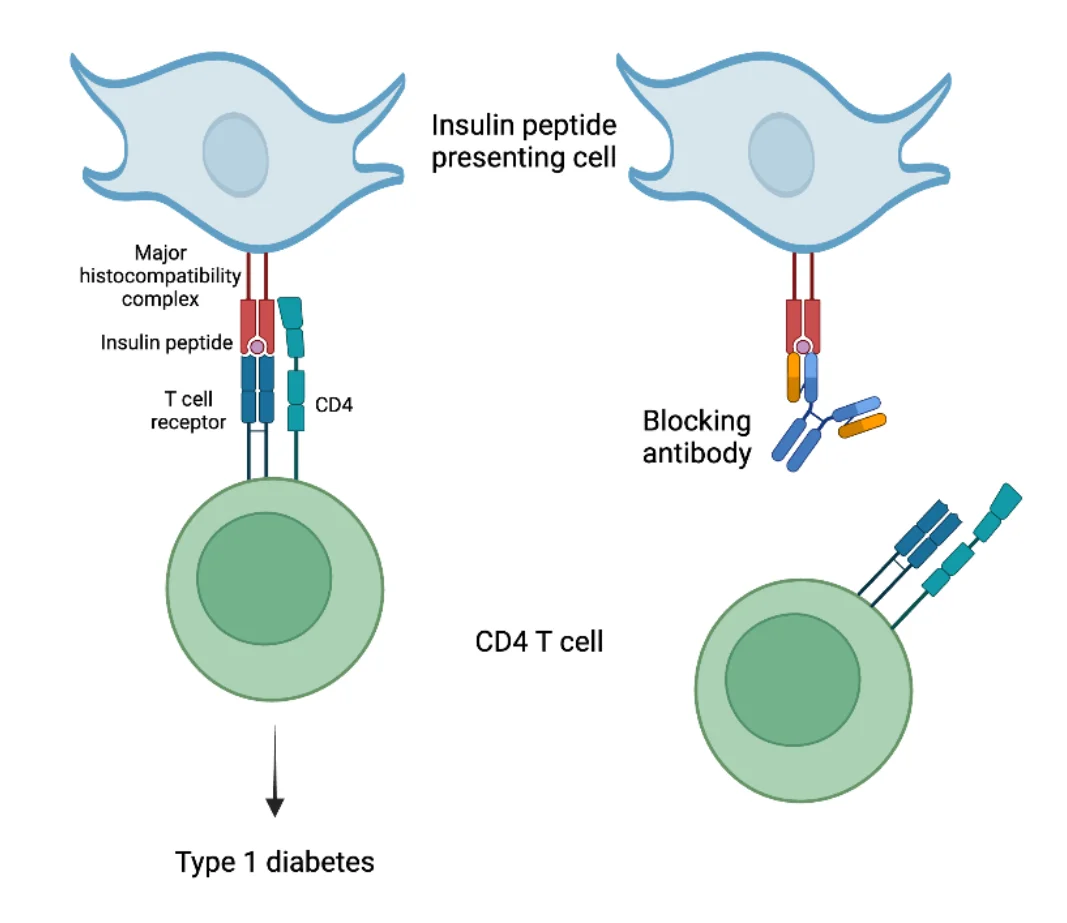Engineering Antibodies and Soluble T-Cell Receptors Against Autoimmune Disease Targets

At Scripps Research in California, Assistant Professor Joseph Jardine and his lab are pioneering the development of highly specific antibodies and antibody-like molecules. One of the Jardine lab’s primary efforts focuses on developing a therapeutic to prevent autoimmune diseases by blocking the harmful peptide-MHC interactions that trigger immune attacks on healthy cells.
Type 1 Diabetes (T1D) is a life-threatening autoimmune disease in which the immune system mistakenly attacks and destroys the insulin-producing β-cells in the pancreas. The Jardine lab’s research is focused on developing engineered antibodies and high-affinity T-cell receptors that block the early immune interactions responsible for initiating this autoimmune attack. By preventing the immune system from recognizing the insulin peptide that triggers the response, Jardine and his team at Scripps Research aim to stop the development of T1D at its source. Unlike broad-spectrum immune-suppressive therapies, their approach specifically targets the immune interactions driving the disease, offering a highly focused treatment without compromising overall immune function. Early results in preclinical models are promising, and this work has the potential to deliver the first antigen-specific therapy capable of preventing T1D in high-risk individuals. Support from the Bachrach Family Foundation is crucial in advancing this pioneering research.

